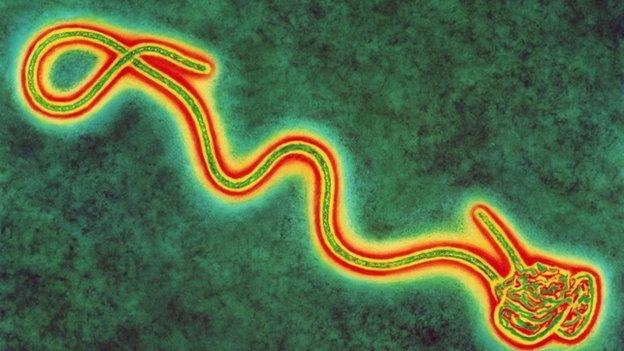In pictures: Battling Ebola in West Africa
- Published
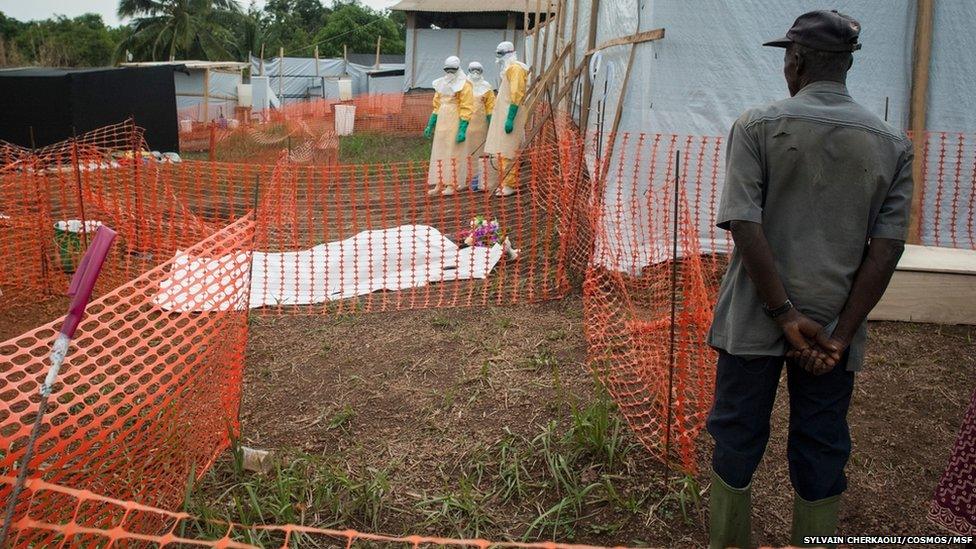
The World Health Organization (WHO) has called for "drastic action" to contain the Ebola outbreak in West Africa, which has killed almost 400 people. It is the world's largest outbreak in terms of cases, deaths and geographical spread.
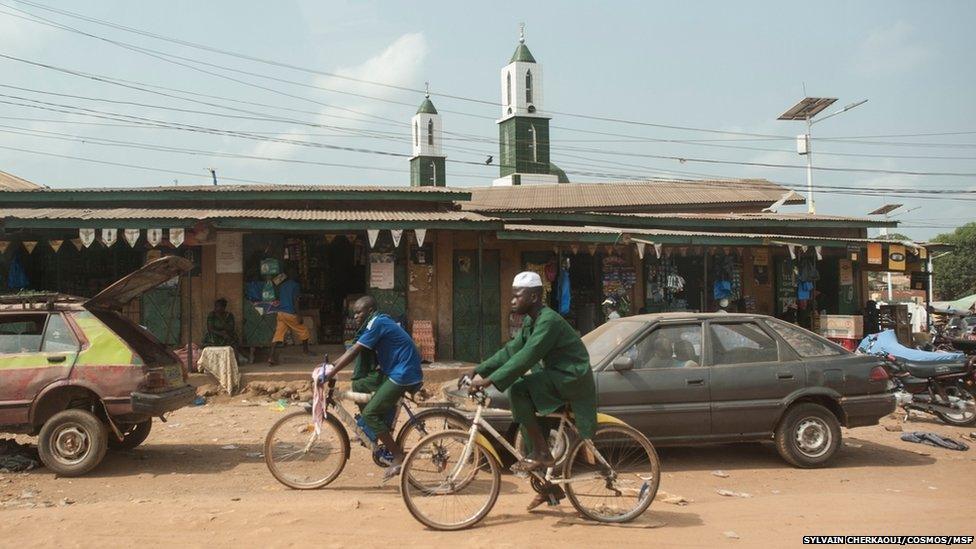
There have been more than 600 cases in Guinea - where the outbreak started four months ago in Guekedou, which used to be a major regional trading post, attracting buyers and sellers from several neighbouring countries.
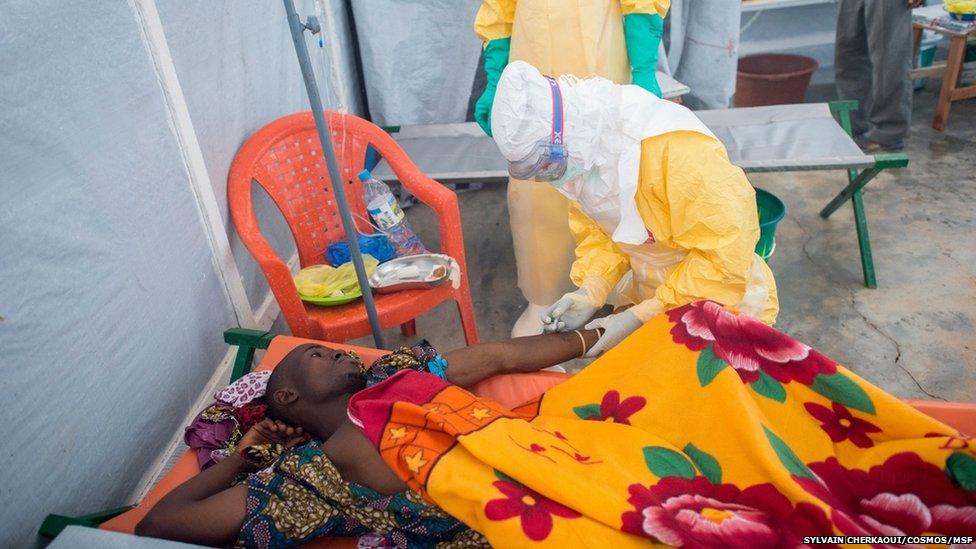
The charity Medecins Sans Frontieres (MSF) has already warned that the Ebola outbreak is out of control. The organisation has some 300 international and national staff working in Guinea, as well as Sierra Leone and Liberia, where the virus has spread. Other countries are on alert in case it spreads even further.
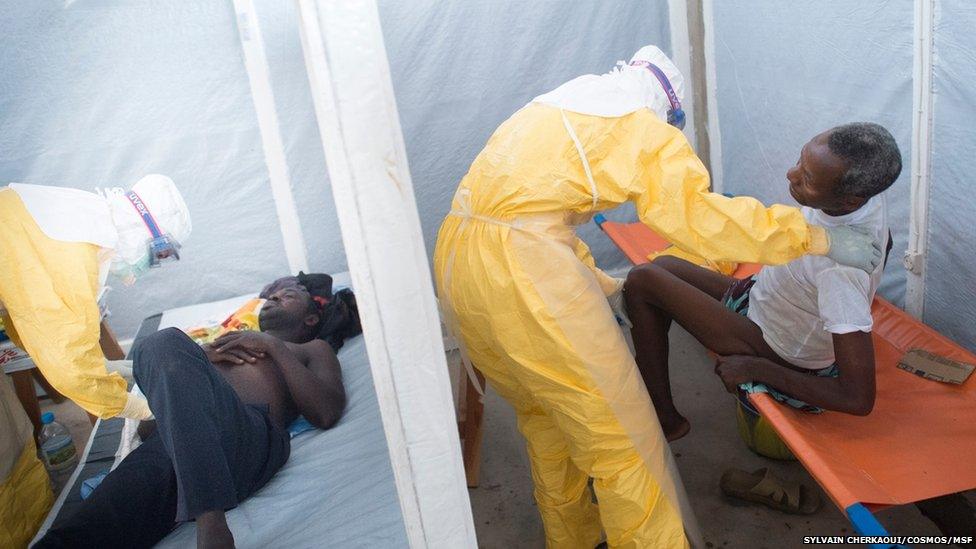
Ebola is a viral illness whose initial symptoms can include a sudden fever, intense weakness, muscle pain and a sore throat, according to the World Health Organization. And that is just the beginning: The next stage is vomiting, diarrhoea and - in some cases - both internal and external bleeding.
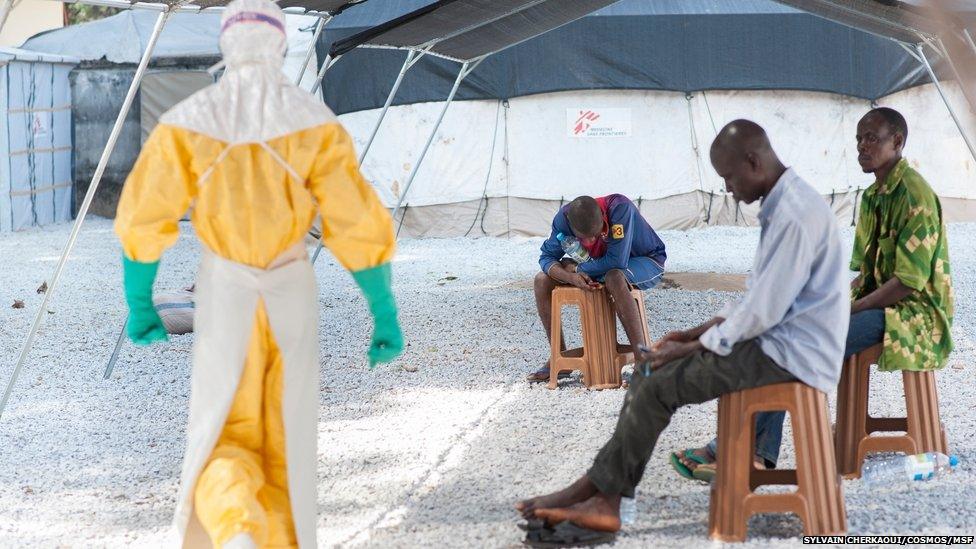
The virus is highly contagious and there is no known cure, so medical staff wear protective clothes to avoid getting infected. Depending on the strain, up to 90% of those infected die. This hygienist is approaching patients who are awaiting results of a blood test.
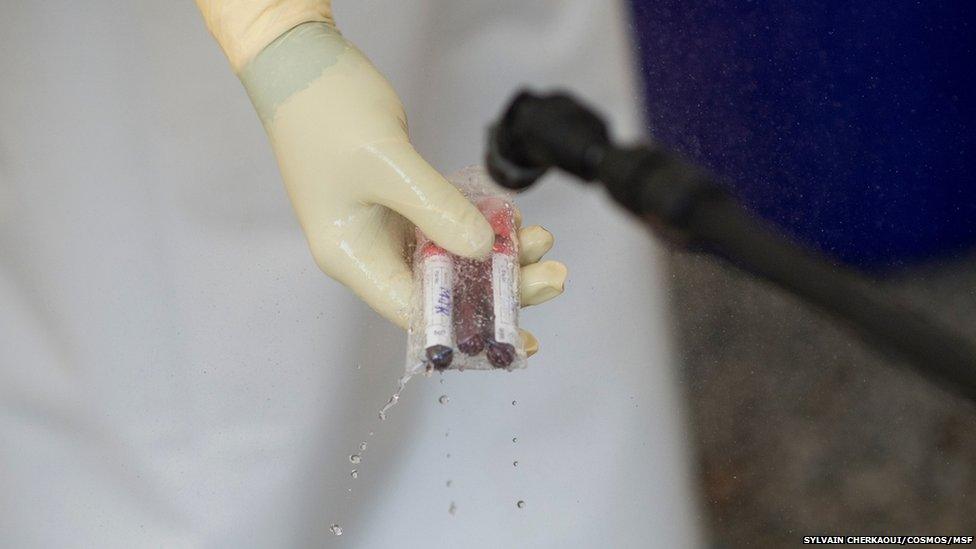
The laboratory tests will determine within hours whether or not the samples contain the Ebola virus.
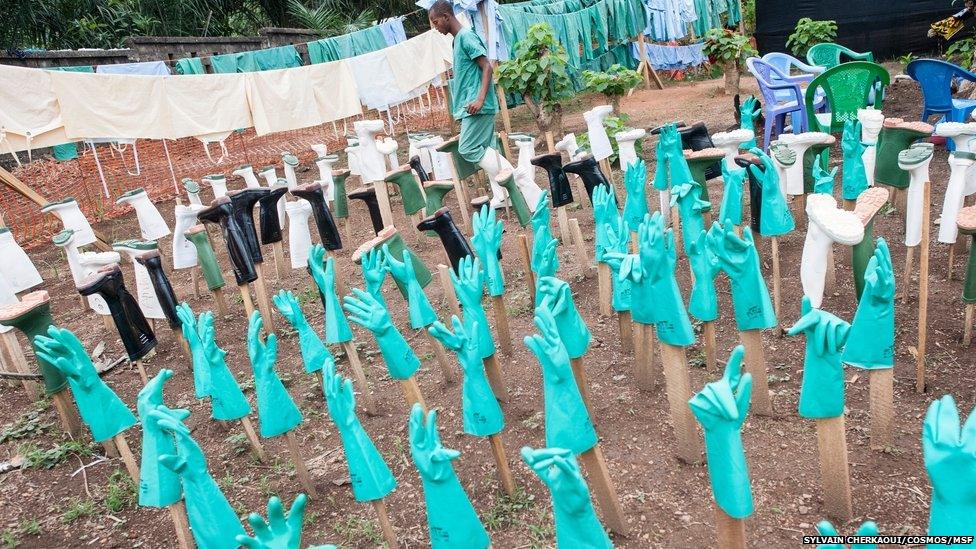
After exposure to the virus in the the isolation zone, clothing and boots are disinfected with chlorine.
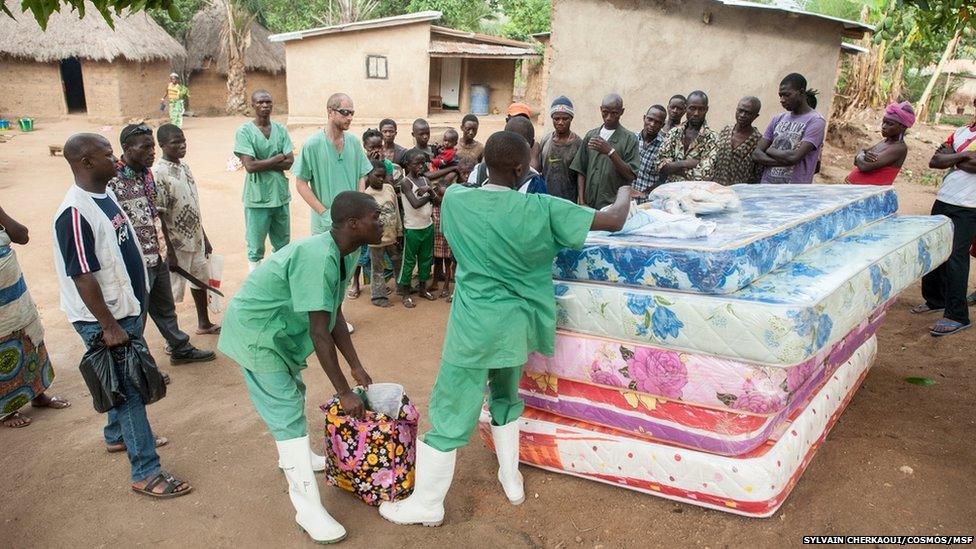
As well as running the clinic, the team work to raise awareness of the disease. Here in Touloubengo, mattresses are distributed to five families whose homes had been disinfected several days earlier following the death of a family member.
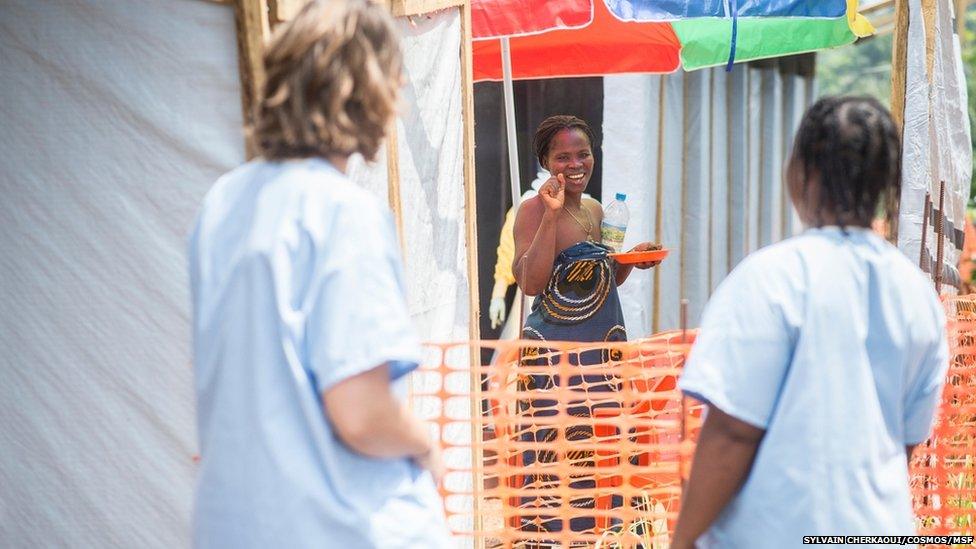
Sia Bintou has spent more than 10 days in the treatment centre where the team often thought that she would not make it, but she ended up beating the disease. While there is no specific treatment for Ebola, staff attempt to strengthen the patient's body by treating the symptoms.
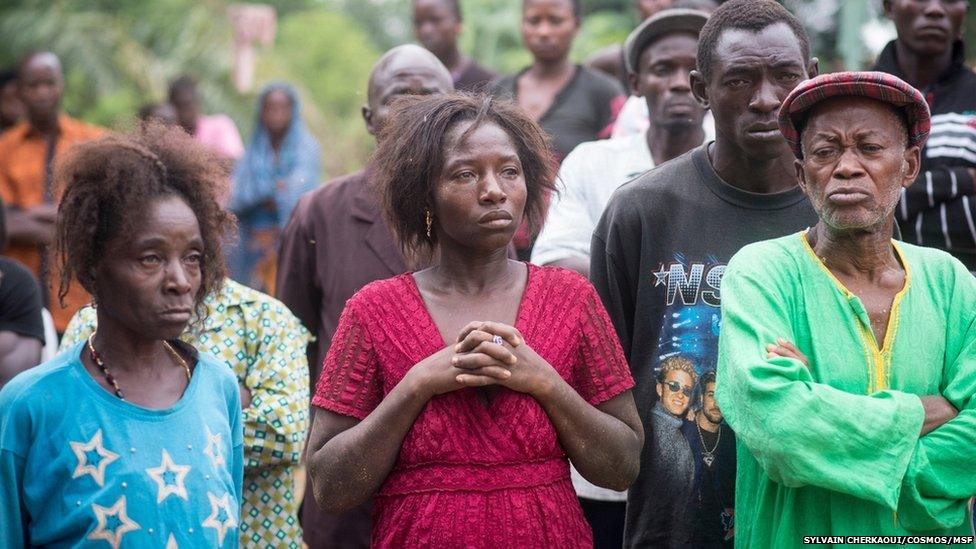
Yet not everyone is saved. Here Finda Marie Kamano's family, including her sister (centre), and other community members grieve at her funeral near her house.
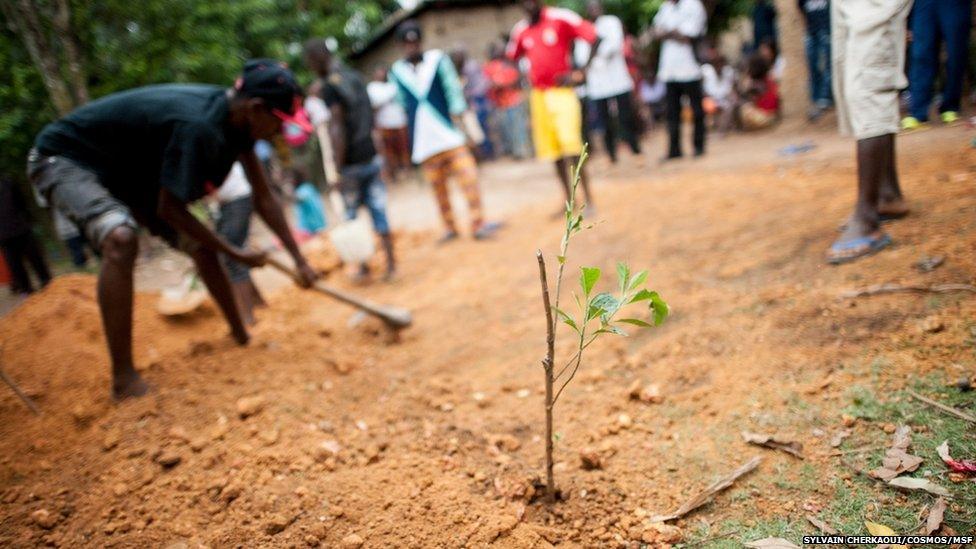
The grave is marked by a solitary sapling.
- Published8 October 2014
